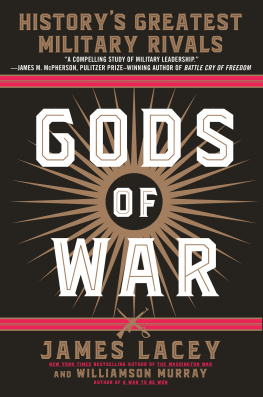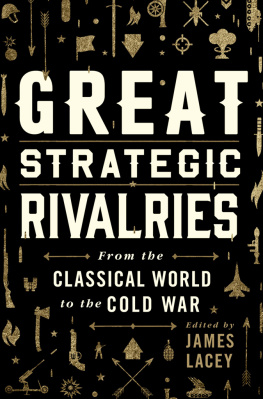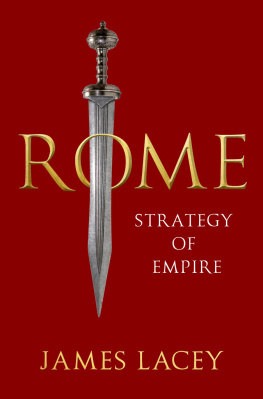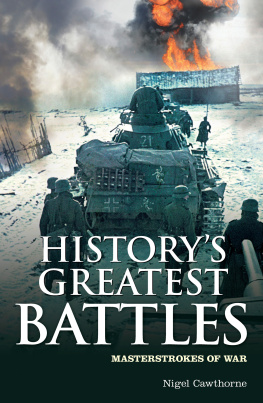James Lacey - Gods of War: historys greatest military rivals
Here you can read online James Lacey - Gods of War: historys greatest military rivals full text of the book (entire story) in english for free. Download pdf and epub, get meaning, cover and reviews about this ebook. year: 2020, publisher: Random House Publishing Group, genre: History. Description of the work, (preface) as well as reviews are available. Best literature library LitArk.com created for fans of good reading and offers a wide selection of genres:
Romance novel
Science fiction
Adventure
Detective
Science
History
Home and family
Prose
Art
Politics
Computer
Non-fiction
Religion
Business
Children
Humor
Choose a favorite category and find really read worthwhile books. Enjoy immersion in the world of imagination, feel the emotions of the characters or learn something new for yourself, make an fascinating discovery.
- Book:Gods of War: historys greatest military rivals
- Author:
- Publisher:Random House Publishing Group
- Genre:
- Year:2020
- Rating:3 / 5
- Favourites:Add to favourites
- Your mark:
- 60
- 1
- 2
- 3
- 4
- 5
Gods of War: historys greatest military rivals: summary, description and annotation
We offer to read an annotation, description, summary or preface (depends on what the author of the book "Gods of War: historys greatest military rivals" wrote himself). If you haven't found the necessary information about the book — write in the comments, we will try to find it.
Gods of War: historys greatest military rivals — read online for free the complete book (whole text) full work
Below is the text of the book, divided by pages. System saving the place of the last page read, allows you to conveniently read the book "Gods of War: historys greatest military rivals" online for free, without having to search again every time where you left off. Put a bookmark, and you can go to the page where you finished reading at any time.
Font size:
Interval:
Bookmark:
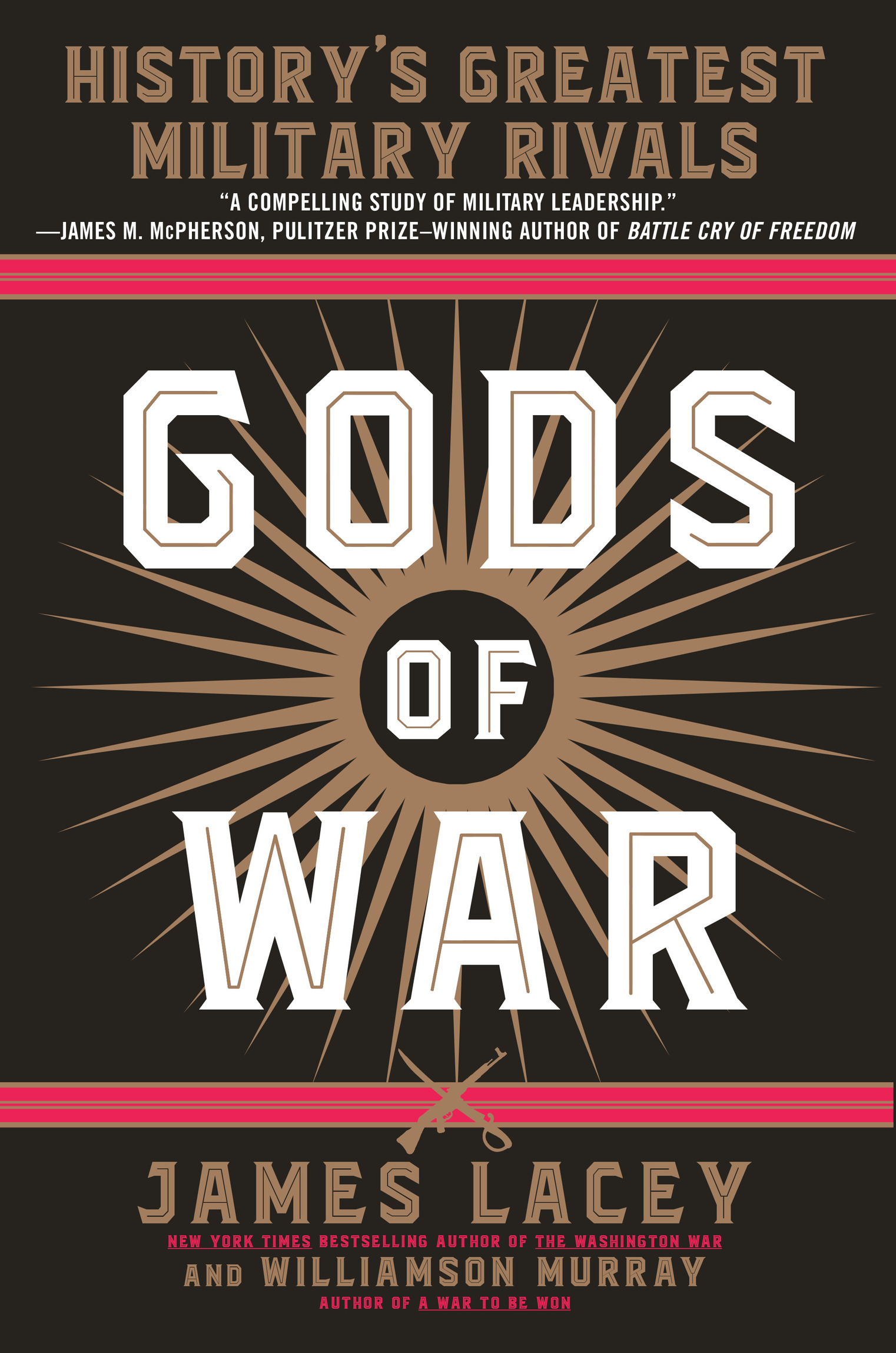
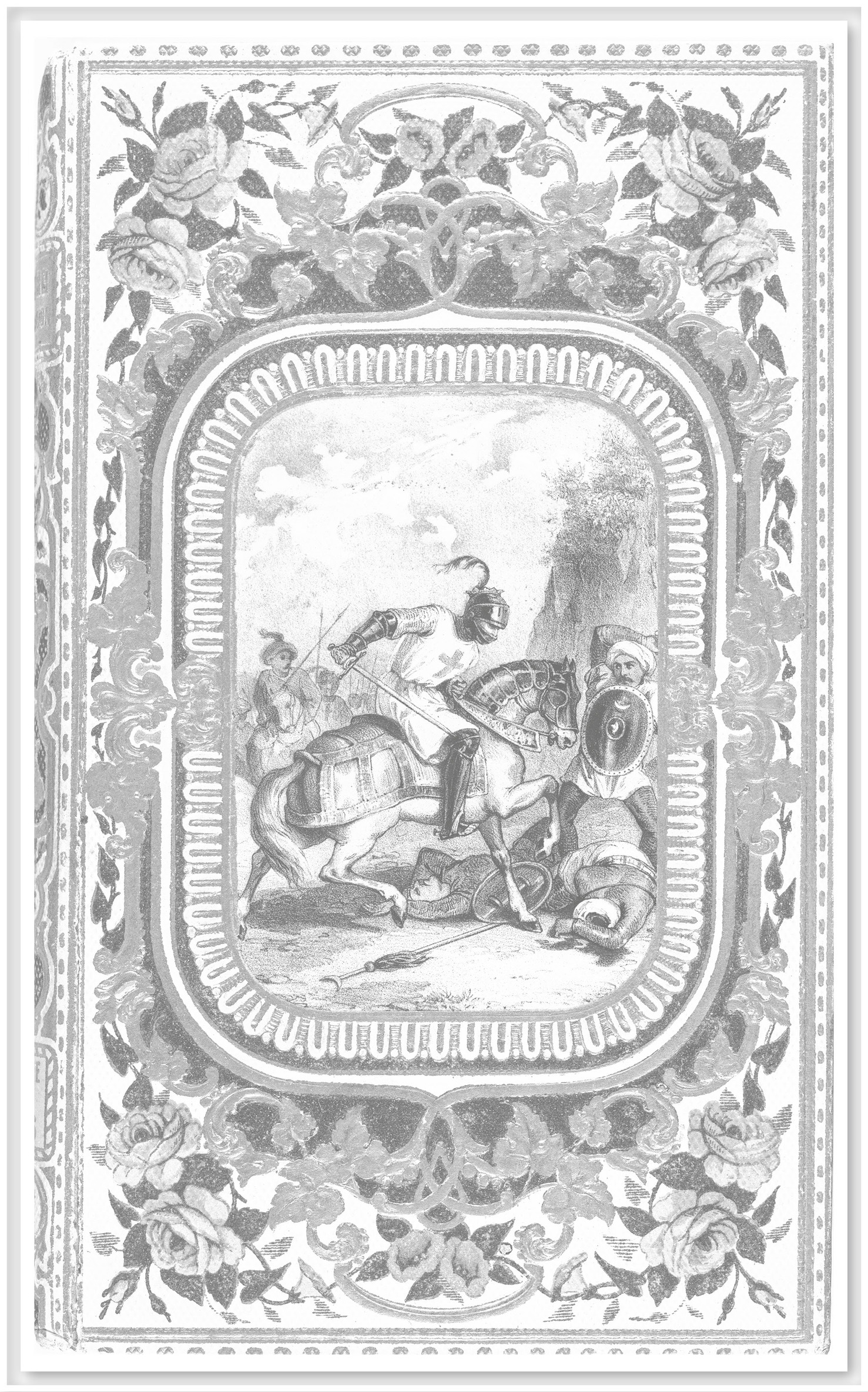
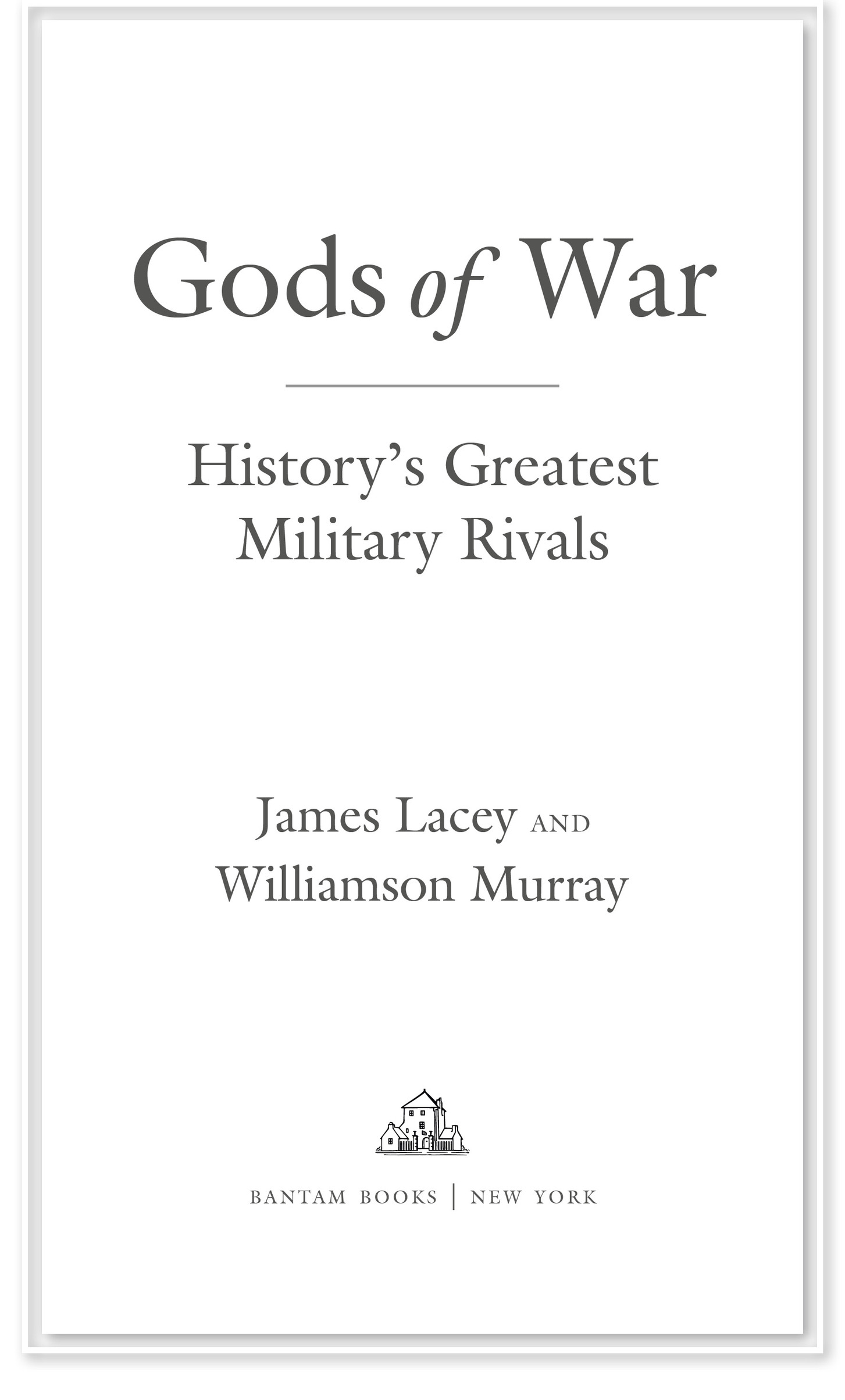
Copyright 2020 by James Lacey and Williamson Murray
All rights reserved.
Published in the United States by Bantam Books, an imprint of Random House, a division of Penguin Random House LLC, New York.
B ANTAM B OOKS and the H OUSE colophon are registered trademarks of Penguin Random House LLC.
Hardback ISBN9780345547552
Ebook ISBN9780345547569
randomhousebooks.com
Book design by Andrea Lau, adapted for ebook
Cover design: Carlos Beltrn
ep_prh_5.5.0_c0_r0
The genesis of this book was a series of conversations we had with other historians after the publication of our previous work, Moment of Battle: The Twenty Clashes That Changed the World. Someone suggested that we write a book based on historys great captains, starting with Alexander. We both liked the idea, but we also wanted to do something different, to get beyond a mere retelling of well-known historical narratives. Plus, doing justice to every great captain from Alexander the Great to the present day would yield a book much too long to publish. And if Moment of Battle taught us anything, it was that readers would not stand for you leaving out their favorite battlesor captains.
So we seized on the idea of writing about only those military geniuses who had fought a general of equal caliber. There were certainly not many of these instances in history, which helped with our length problem. Some readers may be upset that generals like Alexander and Gustavus Adolphus did not make the list, but while they and many others may have been great commanders, we cannot be so sure that a mediocre general would not have also defeated Darius, Tilly, or Wallenstein.
More crucially, we wanted to make sure our readers really learned something about warfare. We took as our guide both of our experiences learning to play chess. There is only so much you can learn by playing someone inferior to you or by revisiting the games of neophytes. There is, however, much to absorb, think about, and learn from studying games that pitted one grandmaster against another. Similarly, anyone wishing to learn about the conduct of war would gain much from studying those few occasions when true masters of the military art engaged each other.
Before getting to the six case studies in this work, we open with a rather sweeping historical examination of the changing character of warfare. This serves two purposes. First, it will familiarize readers with the various time periods we cover in this volume. Second, the military commanders at the center of this book did not fight in a vacuum. They were all products of their time. As such, how they thought about war and executed military operations was driven by the societies they fought for, the military culture of the period, and the technologies available to them. This initial chapter lays out how changes in these elements affected the choices of each of our great captains.
We were loath to end this book with a final case study, as we both believe that history is best used when it can help one make sense of the present and hopefully guide decisions impacting the future. With that in mind, we conclude with a piece aimed at exploring the role of military genius in the modern era, and whether there will be a place for such a genius in future conflicts.
At the end of On War, Prussian general Carl von Clausewitz makes a supremely ironic comment: No one starts a waror rather, no one in his senses ought to do sowithout being clear in his mind what he intends to achieve by that war and how he intends to conduct it. And that is precisely the point; rarely if ever do statesmen, their advisers, or their military leaders think through the consequences of what will transpire after they have launched their military forces into war. Even when fought for the noblest of reasons, war and the battles that result from its conduct represent the darkest of human impulses. As the Duke of Wellington aptly commented, Nothing except a battle lost can be half so melancholy as a battle won. War is the great destroyer, leaving in its wake a path of wanton destruction, rapine, and death, with the bodies and minds of those who survive broken by its savagery. Yet men have pursued its tarnished glory throughout the ages, beginning in our written history with Achilles choosing a young and glorious death in battle against the Trojans over the possibility of a long and comfortable life.
Sometimes these wars are fought by men of talent, but not often, as military genius is a rare commodity. The context and circumstances of the political, military, and social milieu must be right for military genius to emerge in full flower. Had Napolon been born fifty years earlier, he would have retired as a captain of artillery in an army dominated by the great nobles of France. Similarly, had the Civil War happened ten years earlier or later, it is hard to imagine Grant emerging as a major figure. That said, it is perhaps a good thing that military genius has been so rare in history. Unfortunately, those few who have possessed its attributes too often have found themselves driven by a restive impulse to employ their talents in search of conquest and personal glory. In effect, that search has led them to ignore Clausewitzs dictum that war isa continuation of political activity by other means in pursuit of their own dreams. Thus, they have pursued their own personal glory instead of the larger needs of not only their soldiers but their societies as a whole.
All great generals, no matter how noble their cause and their persona, must in the end possess a certain ruthlessness. For some the pursuit of military genius, driven by their demons, has turned into a hardness that knows no bounds. Walking over the desolate landscape of the Battle of Eylau, Napolon commented to one of his marshals as he kicked over the frozen bodies of his dead soldiers, Small change. Marshal Neys comment when he saw that same terrible battlefield, in which the eminent historian David Chandler estimated the French may have lost as many as twenty-five thousand men killed or wounded with their enemies losing a further fifteen thousand casualties, was, Quel massacre! Et sans resultat.What a massacre! And without result.
One also must note that the pursuit of glory by military genius has in many cases brought little benefit to mankind. Rather, it has all too often led emperors, kings, and generals to attempt to emulate the glory of those who have gone before them. Genghis Khan and his successors wrecked much of China and western Asia all the way to eastern Europe, setting Russian civilization back by at least two centuries and permanently scarring the psyche of Russias people. But in the end the Mongolian invaders left little in their wake except massive destruction and death, only the pyramid of skulls they built in Baghdad in A.D. 1258 as a monument to their military genius. Alexander the Great destroyed the great Persian Empire, but his own empire blew away with the sands of Mesopotamia. As he lay dying, his one possibility of saving it disappeared, when he replied to the query of his generals as to who was to succeed him: To the strongest. The result was nearly two centuries of interminable wars that lasted until the Romans brought their concept of political order to the Eastern Mediterranean.
Font size:
Interval:
Bookmark:
Similar books «Gods of War: historys greatest military rivals»
Look at similar books to Gods of War: historys greatest military rivals. We have selected literature similar in name and meaning in the hope of providing readers with more options to find new, interesting, not yet read works.
Discussion, reviews of the book Gods of War: historys greatest military rivals and just readers' own opinions. Leave your comments, write what you think about the work, its meaning or the main characters. Specify what exactly you liked and what you didn't like, and why you think so.

